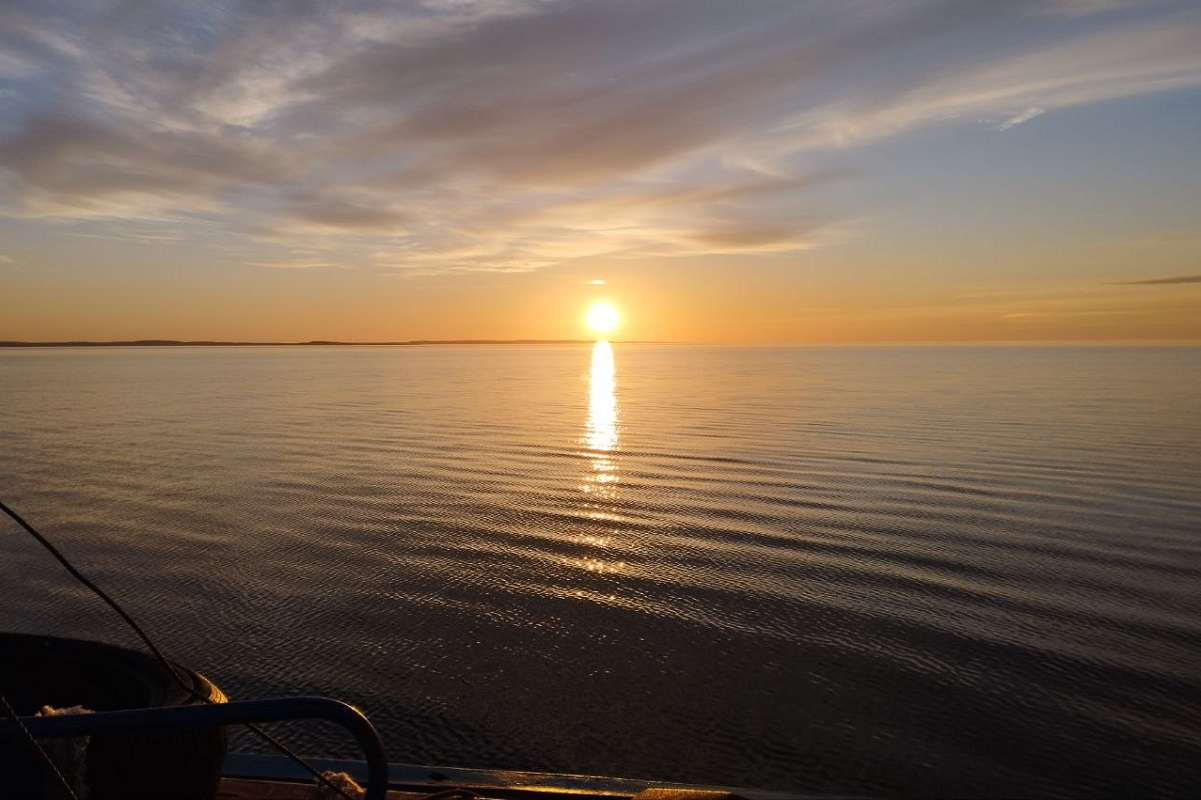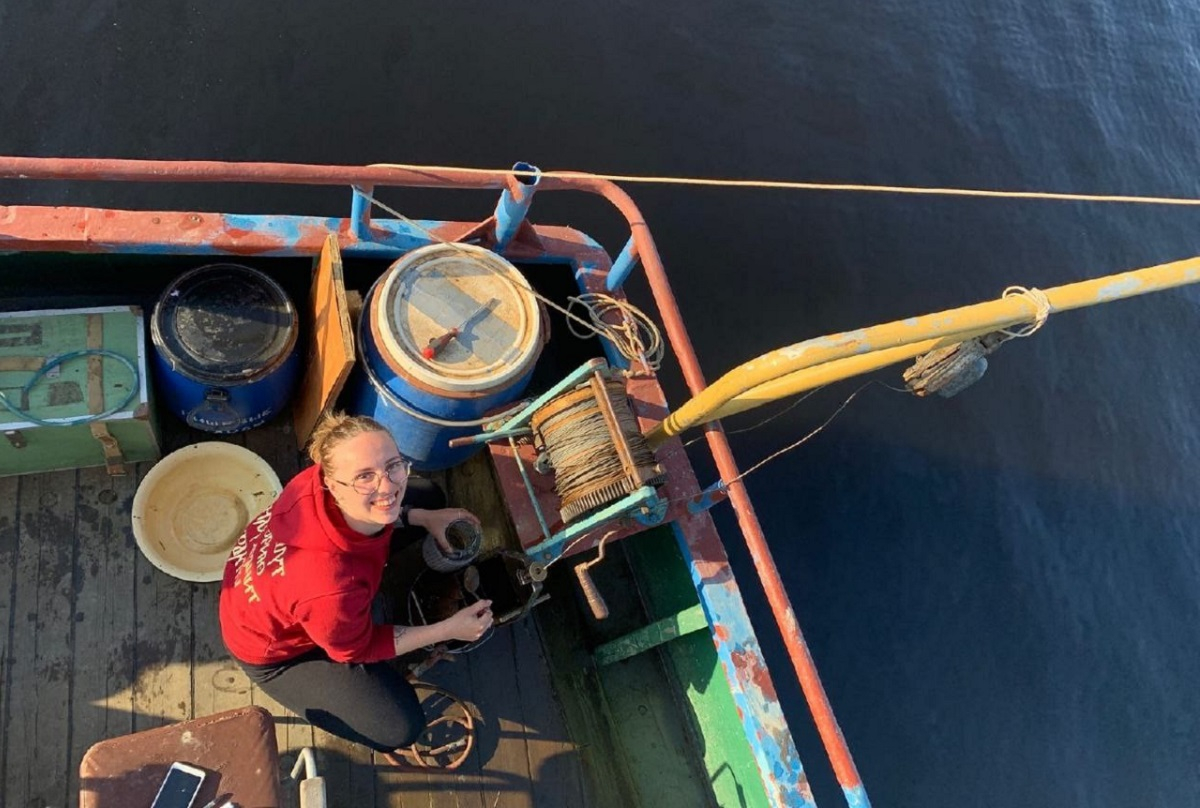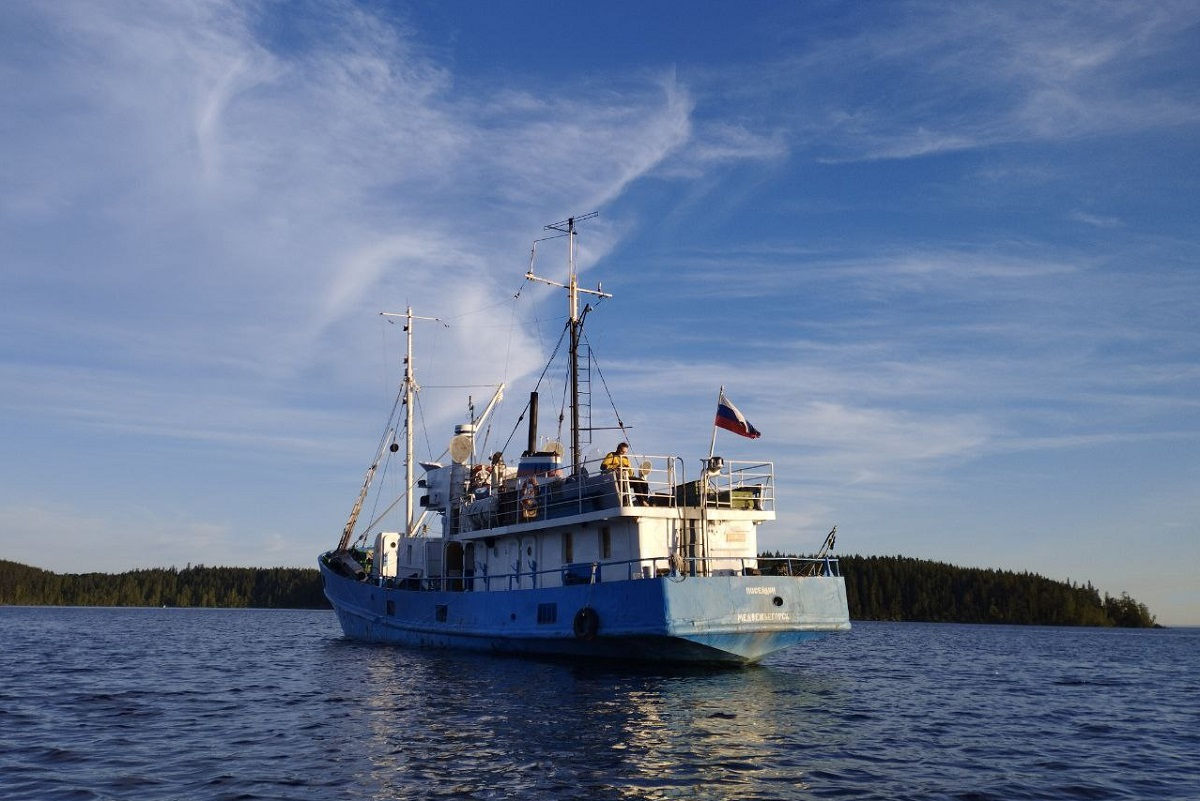Hydrologists from St Petersburg University are the first in the world to show that the distribution of microplastics in the water column of Lake Ladoga depends on the temperature regime
Scientists from St Petersburg University and the Institute of Limnology of the Russian Academy of Sciences — St Petersburg Federal Research Centre of the Russian Academy of Sciences are the first in the world to study the distribution of microplastics in different layers of the water column of Lake Ladoga. The study showed increased concentrations of microplastics above the thermocline — the boundary between the warm water of the upper mixed layer and the colder water of the lower layers of the lake.
Lake Ladoga, located on the territory of Karelia and the Leningrad Region, is the largest freshwater lake in Europe, with an area of about 18,000 square kilometres. At least 40 rivers flow into it, including the Neva River, on which St Petersburg is located. Additionally, there are many settlements and towns on the shores of Lake Ladoga, such as Priozersk, Shlisselburg, Pitkyaranta, Sortavala, Syasstroy, and Lakhdenpokhya.
The research findings published in the scientific journal Water Resources make it possible to ensure environmental monitoring of Lake Ladoga and track the presence of plastic in the water in real time.
The Lake Ladoga area is an important source of fresh water for domestic and industrial use. The lake is also an important waterway in north-west Russia and one of the key areas for the domestic fishing industry.
Scientists have been studying the health of Lake Ladoga for many years, and one of the new areas of study is the presence of microplastics (particles smaller than 5 mm) in the water. According to scientists, microplastics are one of the anthropogenic environmental pollutants that have a significant negative impact on the environmental condition of water bodies and adjacent areas.
At present, there are no universal approaches to its study and no unified classification of the level of microplastic pollution. Microplastics are resistant to degradation and are capable of absorbing various pollutants, which can harm living organisms by accumulating in their internal organs and causing various functional changes. At the same time, most studies on microplastics focus on the assessment of the surface layer of water, with little attention to the vertical distribution: such studies are mainly carried out in marine areas and few focus on lakes.
The scientists from the Institute of Limnology of the Russian Academy of Sciences — St Petersburg Federal Research Centre of the Russian Academy of Sciences and researchers from St Petersburg University confirmed the presence of microplastics in Lake Ladoga and studied in detail their content in different water layers, taking into account the thermal regime.
We are the first to show that the increased microplastic content is observed above the thermocline due to the high density gradient in this layer.
Daria Tikhonova, doctoral student in the Department of Land Hydrology at St Petersburg University, Junior Research Associate in the Laboratory of Complex Problems of Limnology at the Institute of Limnology of the Russian Academy of Sciences — St Petersburg Federal Research Centre of the Russian Academy of Sciences
"If there is no stratification (division of thickness into layers) in the lake and the distribution of temperatures in the water is the same, microplastics are distributed more evenly," said Daria Tikhonova, doctoral student in the Department of Land Hydrology at St Petersburg University, Junior Research Associate in the Laboratory of Complex Problems of Limnology at the Institute of Limnology of the Russian Academy of Sciences — St Petersburg Federal Research Centre of the Russian Academy of Sciences.
During expeditions on research vessels of the Karelian Research Centre of the Russian Academy of Sciences in the 2020-2022 spring and autumn hydrological seasons, scientists collected 140 water samples at various depths of up to 70 metres in different zones of Lake Ladoga. A total of 25 sites were investigated. Sampling was carried out using a special pump filter unit, which allows samples to be taken from different horizons of the water column. A metal filter net installed inside the unit makes it possible to study suspended particles deposited on it, including microplastics.
Scientists from St Petersburg University regularly conduct hydrological research in various water bodies. The University recently co-hosted the conference "Water Security 2024", where a presentation on water sovereignty and its role in global geopolitics was made by Karin Kneissl, Head of the G.O.R.K.I. Centre, St Petersburg University. In her opinion, it is necessary to strictly control water management at the state level and prevent the privatisation of water sources.
Additionally, St Petersburg University heads the list of research organisations in Russia in the number of publications in Scopus-indexed journals on subjects related to the green transition.
The authors of the paper then studied the samples using an optical microscope and equipment at the St Petersburg University Research Park using the Raman spectroscopy method, which makes it possible to analyse liquid samples and the particles they contain. The method is based on the study of the molecular vibrations of the substance being investigated, which makes it possible to obtain structural "fingerprints" that help to identify molecules.
According to the authors of the study, the microplastic particles detected are heterogeneous and can come from a variety of plastic objects (e.g. bottles and bags) or be parts of synthetic clothing. It is likely that microplastic particles are trapped in the thermocline due to their high density, resulting in the concentration of sinking organic matter from the upper layer of water.
In future, the scientists plan to test this hypothesis by studying the distribution of microplastics in different parts of Lake Ladoga.
St Petersburg University, the oldest university in Russia, was founded on 28 January (8 February) 1724. This is the day when Peter the Great issued a decree establishing the University and the Russian Academy of Sciences. Today, St Petersburg University is an internationally recognised centre for education, research and culture. In 2024, St Petersburg University celebrates its 300th anniversary.
The plan of events during the celebration of the anniversary of the University was approved at the meeting of the Organising Committee for the celebration of St Petersburg University’s 300th anniversary. The meeting was chaired by Dmitry Chernyshenko, Deputy Prime Minister of the Russian Federation. Among the events are: the naming of a minor planet in honour of St Petersburg University; the issuance of bank cards with a special design; and the branding of the aircraft of the Rossiya Airlines to name just a few. To mark the 300th anniversary of St Petersburg University, a postage stamp depicting the Twelve Collegia building and the monument to Count Sergey Uvarov was issued.
By the decision of the Governor of St Petersburg Alexander Beglov, 2024 is a year of the 300th anniversary of St Petersburg University in St Petersburg. On the day of the University’s 300th anniversary torches were lit on the Rostral Columns on the Spit of Vasilyevsky Island. St Petersburg University flags were raised on the Palace Bridge. The city public transport was decorated with the University’s symbols. New tourist maps will feature the locations of the University buildings, with thematic and historical materials about the University placed nearby. During St Petersburg’s City Day celebrations in May 2024, St Petersburg University will be a participating venue. The traditional ‘Scarlet Sails Festival’ will also be dedicated to the anniversaries of St Petersburg University and the Russian Academy of Sciences. Additionally, the University has launched a website dedicated to the upcoming holiday. The website contains information about outstanding University staff, students, and alumni; scientific achievements; and details of events held as part of the celebration of the 300th anniversary of the University.




